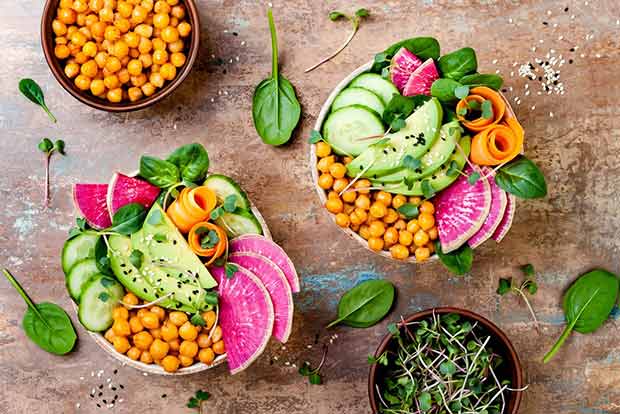Begin typing your search...
Vegan diet 101: Benefits and methods explained
Based on nearly five years of experience, vegan expert Sonal Jain shares how and why choosing a plant-based diet can positively impact health, lifestyle.

Chennai
The China Study, a book by T. Colin Campbell and his son Thomas M. Campbell II, claims that people who eat a predominantly plant-based diet avoiding animal byproducts as a main source of nutrition, may reduce or reverse the development of numerous diseases. This proved true in the case of Chennai-based Sonal Jain, Founder of the Sustainable Living and Learning Community, she says. At a vegan potluck lunch she’s organising on Sunday, she’ll be addressing how switching to a plant-based diet can help bring about healthier living amid more topics.
According to her, animal liberation, environmental sustainability and health are the three vital components of veganism. Elaborating on the last point, she says, “I have had Polycystic Ovarian Syndrome (PCOS) since I was a teenager and like many other women, I was finding it really hard to stay fit. I had a calcium and calorie deficit and just couldn’t understand why. After I switched to veganism, I could notice many positive changes in my body.”
For example, cortisol is known as the “body’s main stress hormone” since it blocks the release of estrogen. “It’s present internally and can affect your menstrual cycle but larger quantities get absorbed due to the consumption of meat. With animal milk too, we can consume many growth hormones (that are meant for the calves) and estrogen, thus throwing your body off-balance,” she says.
For those wishing to transition to plant-based diets, Sonal, who has been a vegan for nearly five years, has some pointers to keep in mind. “Many off-the-shelf products such as Oreo cookies or Hershey’s chocolate syrup are vegan but extremely high in calories and sugar — so the first step is to research and read labels carefully and avoid buying processed food,” she elucidates.
The next, easiest step is to look inside your mom’s kitchen, for most of the components of a south Indian vegetarian meal are plant-based. “Except coffee or tea, curd/buttermilk and ghee, pretty much everything is vegan by default. There are plenty of options to replace these essentials too, such as peanut or soy curd, rice milk, etc.” At the potluck tomorrow, participants can expect to find a wide variety of entirely vegan dishes such as chocolate cakes and truffles, ragi balls, pesto pasta, cutlets, ice creams, etc. to get a clear idea, she feels.
Based on her experience, the next point says Sonal, is to begin small. “Initially, try to start with a vegan breakfast, then replace two meals with plant-based foods and so on. This will allow your body to adjust to the change. In fact, right now even if I see cheese I feel nauseous and my body rejects any dairy product if I consume it by accident.”
Finally, even if one were to travel, it’s easy to find plant-based meals. “I’ve travelled across Latin America, Europe and the USA and found plenty of options. If you notice, the vegetarian food in many Chinese and Thai restaurants are by default vegan too. So even if you’re eating out in Chennai, keep an eye out for healthy plant-based dishes,” she sums up.
Visit news.dtnext.in to explore our interactive epaper!
Download the DT Next app for more exciting features!
Click here for iOS
Click here for Android
Next Story



